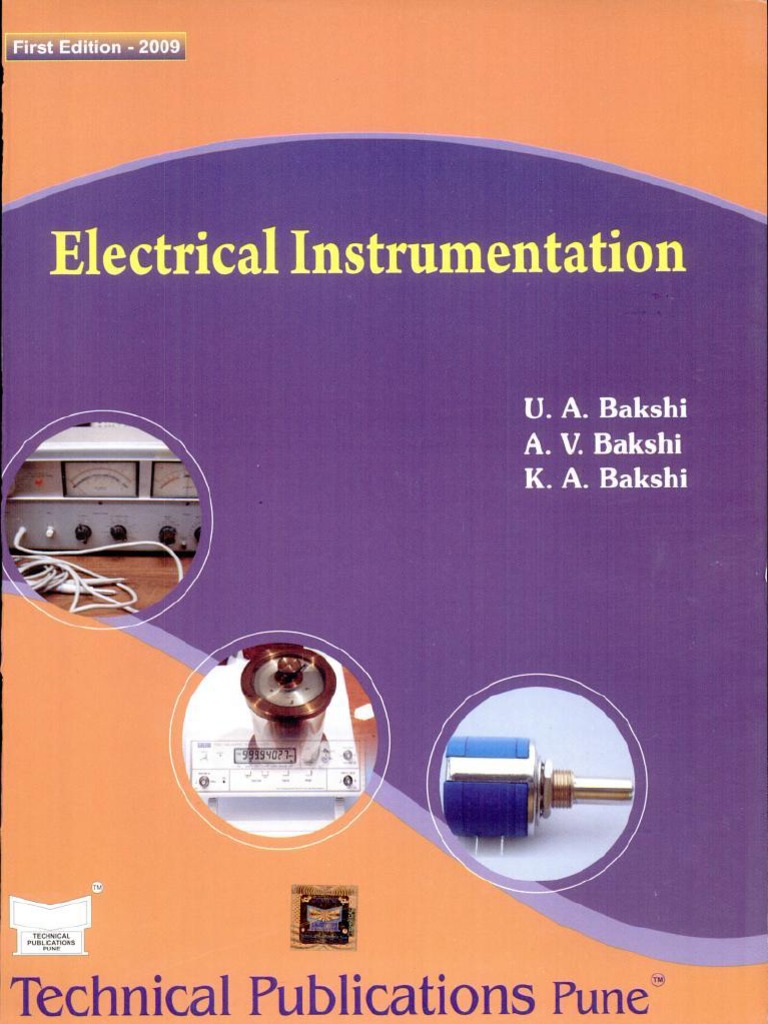Instrumentation in electrical engineering is a fundamental aspect that underpins the functioning of modern technologies. It encompasses the tools, techniques, and procedures used to measure, monitor, and control electrical systems. The advent of sophisticated instrumentation has vastly enhanced the accuracy, efficiency, and reliability of electrical systems. Understanding the importance of instrumentation reveals how it promises a paradigm shift in both practice and innovation within the field.
In essence, instrumentation can be dissected into various categories, including measurement, control, and process management. Its applications are vast, stretching across industries such as power generation, telecommunications, manufacturing, and medical technology. The proficiency in utilizing instruments is not simply beneficial—it is essential for the advancement of engineering practices. The interplay between measurement and control forms the backbone of electrical engineering, setting the stage for optimized system performance.
The precision of measurements obtained through instrumentation cannot be overemphasized. When assessing electrical systems such as circuits, transformers, and motors, inaccuracies in data can yield catastrophic results. For instance, the calibration of sensors and transducers is paramount. Inaccurate readings can lead to equipment failures, inefficiencies, or even hazardous conditions. Instrumentation engenders a framework where data integrity is preserved, allowing engineers to make informed decisions. This fidelity of measurement fosters a greater understanding of system behaviors, enhancing reliability.
Moreover, instrumentation plays a critical role in the control of electrical systems. The implementation of feedback loops, which utilize real-time data from instrumentation, enables systems to self-correct and adapt to changing conditions. Advanced control strategies, such as PID (Proportional-Integral-Derivative) control, capitalize on accurate measurements to optimize performance. This continuous monitoring and adjustment not only maximize operational efficiency but also prolong the lifespan of electrical equipment. The transformation from reactive to proactive management is one of the most substantial shifts brought about by advanced instrumentation.
Furthermore, the integration of instrumentation with digital technologies heralds a new era of smart systems. The rise of the Internet of Things (IoT) showcases how interconnected devices can collaboratively perform tasks that were once solitary. In the electrical engineering realm, this connectivity allows for enhanced data analytics and predictive maintenance. By harnessing the power of big data, engineers can predict failures before they occur, thereby minimizing downtime and operational costs. The notion of a fully integrated electrical landscape is rapidly transitioning from theory into practice, thanks to instrumentation advancements.
Another critical facet of instrumentation is its ability to enhance safety in electrical engineering practices. Whether in high-voltage environments or within intricate manufacturing processes, accurate and reliable instrumentation is essential for mitigating risks. Safety instruments, such as circuit breakers and alarms, are directly tied to monitoring systems that detect anomalies. These safety mechanisms not only safeguard human lives but also protect valuable equipment and infrastructure. As innovations in instrumentation emerge, safety protocols become increasingly robust, ensuring that engineering practices evolve in alignment with safety standards.
In addition, the role of instrumentation in research and development cannot be understated. Voltage, current, and temperature measurements are foundational in experimental setups involving electrical components. Instrumentation aids in the exploration of new materials and technologies. In laboratories, sophisticated instruments such as oscilloscopes and spectrum analyzers enable meticulous experimentation, fostering breakthroughs in electrical engineering. These developments often lead to revolutionary processes, evolving the landscape of technology and its applications.
Moreover, the educational implications of instrumentation are profound. As future engineers delve into their studies, understanding the principles and applications of instrumentation cultivates a deep-seated competence in their field. Curricula that emphasize hands-on experience with instrumentation equip students with the skills necessary to navigate the complexities of modern electrical systems. The promise of innovation is secured through educational institutions that prioritize this essential knowledge, ensuring that the next generation is well-prepared to tackle emerging challenges.
As we contemplate the future trajectory of electrical engineering, the contribution of instrumentation remains at the forefront. Innovations such as artificial intelligence and machine learning are becoming intertwined with instrumentation practices, further advancing precision and efficiency. These technologies offer unprecedented insights into system performance, leading to the design of more intelligent electrical systems. The future of instrumentation is characterized by its continual evolution, adapting to the fast-paced advancements of technology.
In conclusion, instrumentation emerges as a cornerstone of electrical engineering, guiding the field toward enhanced precision, safety, and innovative potential. Its impact is evident across various domains, ranging from ensuring operational reliability to fostering advancements in research and education. The ongoing integration of modern technologies with instrumentation practices not only piques curiosity but also promises a transformative shift in perspectives for engineers and industries alike. As we embrace the significance of instrumentation, it becomes increasingly clear that its role is indispensable for the continued advancement of electrical engineering.










